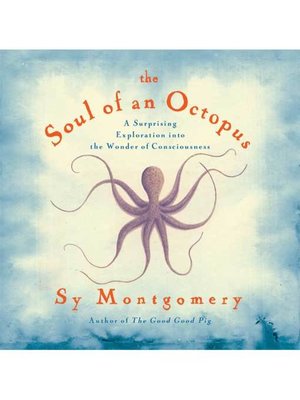

Kali was maybe nine months-old, or younger. It was a friendship that lasted… to the end of her life. But, when she finally did, we became very, very good friends. Talk about multi-tasking! She was very wary and not eager to reach out to us and touch us at first. Some of it may be instinctual but it’s not all instinctual. That involves millions of muscles and nerves and decisions. One of the things that she learned par excellence, was camouflage.

If you’re living wild in the open ocean for a long time, you have a chance to learn a great deal. She was older than Kali, probably more mature than any of the octopuses that lived at New England Aquarium. Octopus Escape Each of the octopuses you write about seem to have had individual personalities-tell us a little about Octavia and how she was different from Kali. (Read: Octopuses are Playful, Curious, and Smart.) It’s possible to have an octopus care about you, to choose your company. They’re so different from us, but what held my attention and totally mesmerized me was, that despite our differences, it’s possible to have a meeting of the minds with someone like this. Here is a baggy, boneless body that can pour itself into the tiniest spaces, has venom like a snake, ink like an old fashioned pen, a beak like a parrot, can taste with their skin, and can change color and shape. (Watch: Is This Picture-Taking Octopus as Smart as She Seems?) What is it about octopuses that intrigues you? Talking from her home in Hancock, New Hampshire, she explains how octopuses are good at multi-tasking why the missionary position doesn’t work for mating octopuses and why she believes all animals, including octopuses, have souls. But for Sy Montgomery, author of Soul Of An Octopus: A Surprising Exploration Into The Wonder of Consciousness, octopuses are a source of endless fascination and wonder.

Importance: The author points out here the priority of thinking in the.For most of us, the idea of having our hands stroked by a rubbery arm covered in suckers is not that appealing. Marine biologist James Wood suggests our hubris gets in our way. Examining these altered states of consciousness allows Montgomery to understand more about consciousness in general.Īssessing the mind of a creature this alien demands that we be extraordinar flexible in our own thinking. She experiences awe and an expanded experience of time when in contact with the octopuses. Importance: Montgomery explores consciousness from several perspectives, as illustrated here. Meditation and prayer, too, alter time perception. So does 'flow,' the state of being fully immersed in focus, involvement, and enjoyment. She encapsulates the animal's extraordinary nature in facts such as this one.įeelings of awe are known to expand the human experience of time availability. Importance: Montgomery illustrates the octopus’ incredible characteristics throughout the work. Three fifths of octopuses’ neurons are not in the brain but in the arms.


 0 kommentar(er)
0 kommentar(er)
